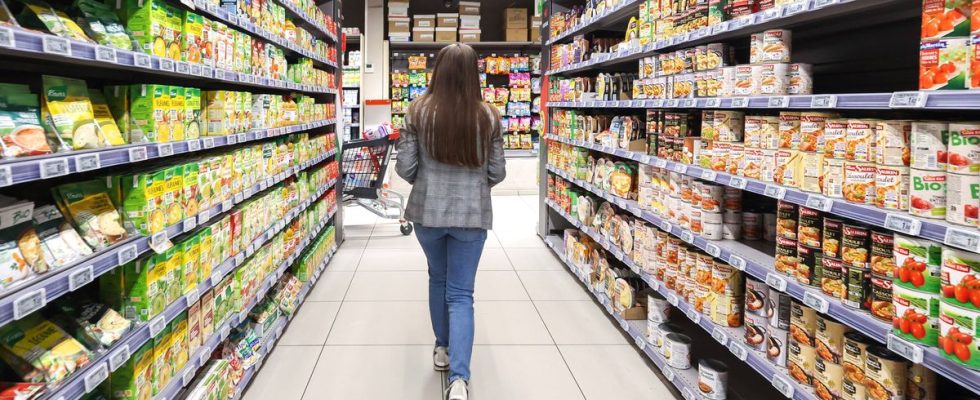In a context of still very high inflation, the government put the pressure on and the French industrial giants said “ok”. Negotiations with distributors will reopen early with a view to lowering the price of products on the shelves from the summer.
Each year, the prices of products sold to supermarkets are set after a period of negotiation. That for 2023, completed on March 1, resulted in an average increase of around 10% in the prices paid by brands to manufacturers. The latter have been calling for price increases for months to take into account the increase in their production costs (energy, transport, raw materials, packaging, etc.). But since then, the costs of certain agricultural raw materials or energy have tended to stabilize or even fall.
The government had therefore been asking for price reductions for several weeks, and had brandished the tax threat on the “undue margins” of manufacturers if no action was taken. Questioned on Wednesday on the sidelines of a trip, the Minister of the Economy Bruno Le Maire welcomed this freshly found agreement: “This is excellent news for consumers. “It means that prices will be renegotiated downwards in advance, so we can break the inflationary spiral – as we have committed – by next fall on food prices”, he said. he argues.
“The Top 75” at the negotiating table before the end of May
Convened Wednesday morning in Bercy, the representatives of Ania, the main representative body of the sector, and Ilec, which carries the voice of manufacturers of major national brands, have therefore indeed taken a step in the direction of the government, which had been asking them for a few weeks to lower the selling price of their yoghurts, shampoos or spreads in supermarkets. “We are committed before the end of May to the ”Top 75”, the 75 largest consumer product companies in France, returning to the negotiating table”, indicated the president of the ‘Ania, Jean-Philippe André, at the end of this meeting with the Minister of Economy Bruno Le Maire, the Minister Delegate for Industry Roland Lescure and Olivia Grégoire, Minister Delegate in particular for Trade.
The “Top 75” includes, among others, Andros, Bonduelle, Coca-Cola, Pernod Ricard, Nestlé, Lactalis, Danone, Pasquier, Panzani, Unilever, Mars, Kellogg’s or Saint-Michel. And, in the end, products mainly composed of wheat, vegetable oil or Arabica, whose prices have fallen, should see their prices fall more quickly.
These industrial giants are concerned when they have “experienced a drop in the cost of one of their inputs, affecting the price of production, of more than 20% since March 1, 2023”, and that they have obtained more 10% increase in their prices during the last negotiations, specify Ania and Ilec in a press release. The other manufacturers will also be able to return to the negotiating table of their own free will.
Manufacturers have agreed, on the other hand, “to strengthen commercial promotions” to contribute to an immediate price reduction on the shelves, indicated the representatives of Ania and Ilec.
“SMEs have nothing to do with it”
The fact that these renegotiations focus only on the biggest agri-food manufacturers allows “once and for all” to get out “of this debate SMEs, which have nothing to do with it”, underlined the president of the Ania, Jean-Philippe André. Something to relieve the smallest groups or those with a specific activity, who had been very worried.
On Tuesday, the Brasseurs de France union pointed out to AFP that production costs (glass, packaging) “remain at very high levels”, and that energy prices have been “multiplied by four” for certain SMEs. , who renewed their contracts at the end of the year, when prices were at much higher levels. Charcuterie-caterer companies, through their federation (FICT), also expressed their fears on Tuesday that such renegotiations would put them “more at risk”, while the price of the cuts of pork they use registers a new increase of “15 to 20% since the beginning of the year”.
It should be noted that these renegotiations will take place under the worried eye of farmers, who still fear that price wars will be to the detriment of their own income. “As promised, these renegotiations will not concern SMEs, and will not impact farmers”, hammered for her part Olivia Grégoire, welcoming Wednesday in a tweet “the spirit of responsibility” of the big industrialists.

